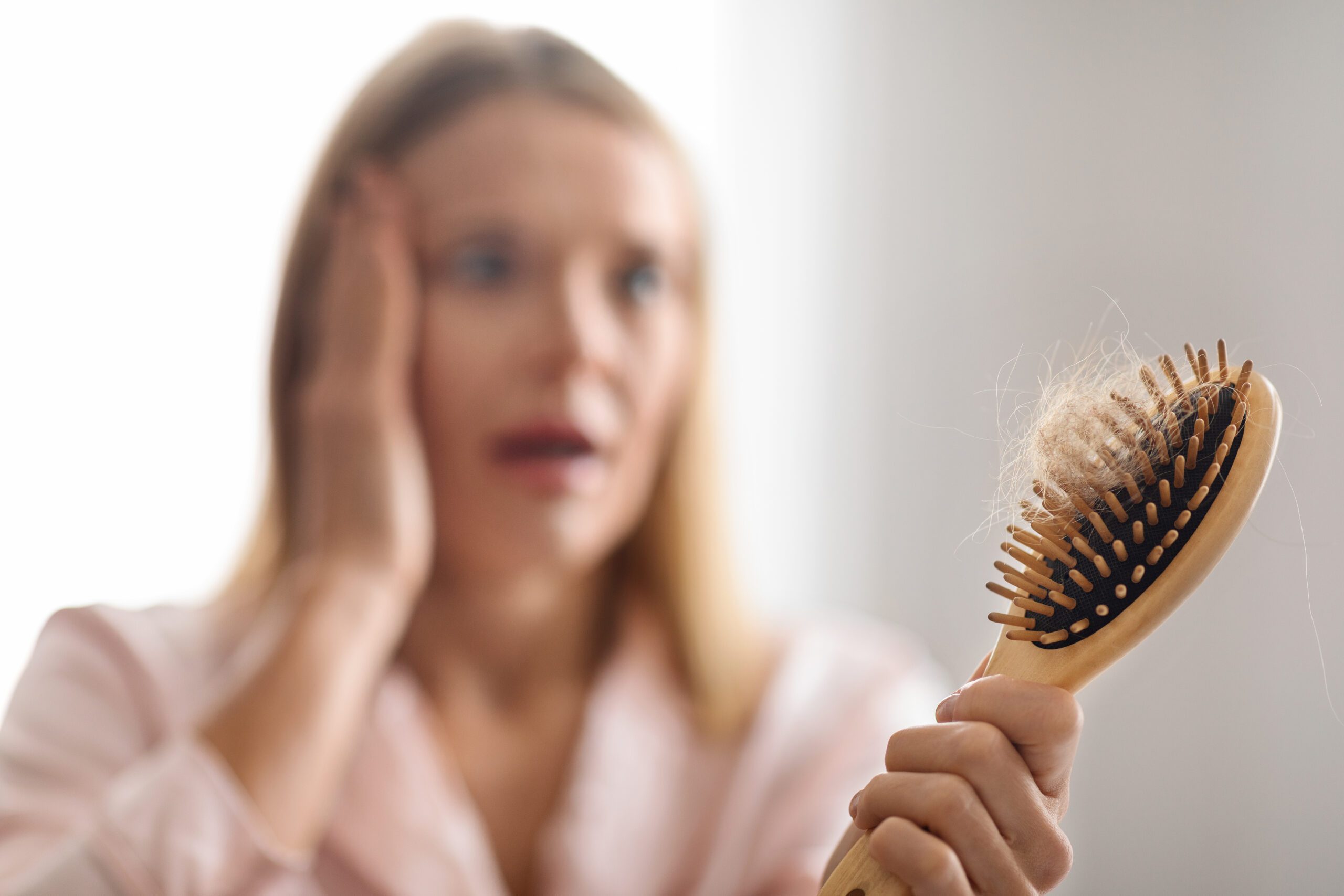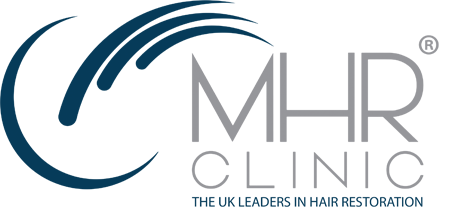It’s a common misconception that female hair thinning is solely down to “female pattern hair loss.” In truth, many women face hair shedding or thinning driven by hormonal imbalances — thyroid disorders, polycystic ovary syndrome (PCOS), perimenopause/menopause, postpartum hormone fluctuations, insulin resistance, and stress hormones (cortisol). Recognising the hormonal dimensions is key for accurate diagnosis and targeted treatment. In this in-depth guide, we explore the interplay between female hormones and hair health, how a clinic like MHR assesses and treats these cases, and what women can do to support treatments.

Key hormonal factors that can affect hair in women
-
Thyroid disorders (hypothyroidism / hyperthyroidism)
Thyroid hormones (T3, T4) influence hair follicle cycling. Both underactive and overactive thyroid can lead to diffuse hair shedding (telogen effluvium) or thinning. -
Androgen excess / PCOS
In PCOS, elevated androgens may contribute to miniaturisation of hair follicles in predisposed areas. Women may show the “male pattern” thinning in addition to other symptoms (hirsutism, irregular cycles). -
Estrogen / progesterone decline (peri-/post-menopause)
As estrogen decreases relative to androgens, hair may lose density. The protective effect of estrogen (on hair growth and prolonging anagen) diminishes. -
Postpartum hair loss (post-partum telogen effluvium)
After pregnancy, a large proportion of hair follicles move to telogen phase and are shed in the months following childbirth. This is usually temporary but can be exacerbated by nutritional stress, sleep deprivation, hormonal shifts (drop in oestrogen). -
Insulin resistance & metabolic hormone factors
Elevated insulin, and related metabolic syndrome elements, are sometimes associated with androgen-related hair thinning, especially in women with PCOS traits. -
Cortisol & chronic stress
Excess cortisol (from chronic stress) can disrupt hair cycle, merge with telogen effluvium, and worsen hair follicle health.
Diagnostic approach in a hair clinic setting
-
Detailed medical & menstrual history
Ask about cycle regularity, menopausal symptoms, pregnancy history, weight changes, hair shedding onset, family history. -
Blood tests
-
Thyroid panel (TSH, free T3, free T4)
-
Androgen panel (testosterone, DHEAS, SHBG)
-
Oestrogen, progesterone levels (if appropriate)
-
Fasting insulin / HOMA-IR if metabolic concerns
-
Ferritin, iron, B12, folate, vitamin D, zinc (nutritional cofactors)
-
-
Scalp & hair assessment
Trichoscopy, hair pull tests, phototrichogram, scalp biopsy if ambiguous. -
Rule out other causes
Medication history, autoimmunity, nutritional deficiencies, scalp disease, etc.
Treatment strategies & integrative approach
-
Address the root hormonal imbalance
-
Where appropriate, referral to endocrinology or gynaecology (for PCOS, thyroid)
-
Hormone replacement (e.g. HRT) as medically indicated (for menopause)
-
Insulin-sensitising agents or dietary changes for metabolic contributors
-
-
Adjunct hair-specific therapies
-
Minoxidil (topical)
-
Antiandrogen topicals (e.g. spironolactone formulations, if safe and approved)
-
Platelet-rich plasma (PRP), microneedling
-
Low-level laser therapy
-
-
Nutritional support & supplementation
-
Ensure adequate iron / ferritin, vitamin D, zinc, B vitamins
-
Protein intake, omega-3 intake, and other micronutrients
-
Glycaemic control (low glycaemic diet, reduce refined sugar, control insulin)
-
-
Lifestyle & stress modulation
-
Sleep hygiene, stress reduction (meditation, counselling)
-
Exercise (suitable forms to improve insulin sensitivity)
-
Avoid over-restrictive diets which can worsen hair shedding
-
-
Monitoring & expectations
-
Hair regrowth is gradual; many patients may see improvements from 3–6 months, full effect by 12 months or more
-
Combine clinical assessments, photos, maybe scalp measurements
-
Adjust plan based on response; sometimes cycling treatments (e.g. periodic microneedling) helps
-
Common myths & FAQs
-
“If I use minoxidil alone it’s enough” — Underlying imbalance must be addressed but Minoxidil and herbal treatments remedies will help to regain hair.
-
“Hair loss will reverse immediately after menopause” — not always; residual androgen effects may persist.
-
“All hair thinning in women is genetic” — false; many modifiable hormonal causes exist.
-
“Supplements alone can fix hormonal hair loss” — limited when done in isolation.
-
“It’s too late after 50” — not always; many success stories even in older women (within reason).
If you would like to discuss your hair loss or would like more information on our services and how we could help you.
Click Here to Enquire
